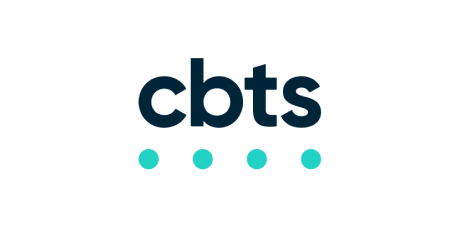Introduction
In the rapidly evolving landscape of AI-powered development tools, two platforms have recently gained significant attention: Cursor AI and OpenAI Canvas. Cursor AI, an innovative code editor built on Visual Studio Code, has been making waves in the developer community. Meanwhile, OpenAI has entered the arena with Canvas, a new interface for ChatGPT that expands its capabilities beyond simple conversation, particularly for writing and coding projects.
This comparison is especially relevant as developers seek to optimize their workflows and leverage AI assistance in their daily tasks. As these tools continue to evolve, understanding their strengths and differences becomes crucial for developers looking to enhance their productivity and code quality.
Feature Comparison
| Feature | Cursor AI | OpenAI Canvas |
|---|---|---|
| Code Generation | Generates entire functions | Generates code snippets |
| Debugging | Proactive debugging | Offers bug fixing capabilities |
| Code Review | Automated code review with smart suggestions | Provides inline code review and suggestions |
| Refactoring | Extensive refactoring options | Offers tools for improving and refactoring code, including bug fixing and adding comments |
| Language Support | Excels in JavaScript, Python, TypeScript; supports others | Python, JavaScript, TypeScript, Java, C++, PHP |
| IDE Integration | Deeply integrated with VS Code | Separate interface alongside ChatGPT |
| Real-time Assistance | Provides real-time suggestions and smart completion | Offers inline feedback for early error detection |
| Collaboration | Supports collaborative coding (in Business plan) | Supports collaboration for writing and coding projects with ChatGPT; real-time multi-user collaboration not explicitly mentioned |
| Language Porting | No information available in provided documents | Supports porting code between different languages (e.g., Python, JavaScript, C++) |
| Writing Assistance | Primarily focused on coding | Supports both writing and coding projects |
| Customization | Leverages VS Code extensions and plugins | Limited information available on customization options |
User Interface & Experience
Cursor AI:
- Built on a familiar Visual Studio Code-like interface, making it immediately accessible to many developers.
- Offers a seamless integration of AI features within the traditional IDE environment.
- Provides real-time suggestions and smart completion during coding.
OpenAI Canvas:
- Introduces a new interface alongside the traditional ChatGPT chat window.
- Offers a dedicated workspace for writing and coding projects.
- Allows users to interact with AI in a more structured way, focusing on specific tasks within a project.
Capabilities & Key Features
Cursor AI:
- Generates entire functions and offers proactive debugging.
- Provides extensive refactoring options and detailed explanations.
- Offers automated code review and smart suggestions.
- Excels in JavaScript, Python, and TypeScript, but supports other languages.
OpenAI Canvas:
- Generates code snippets and adds comments.
- Allows users to request modifications and explanations.
- Supports multiple languages including Python, JavaScript, TypeScript, Java, C++, and PHP.
- Offers inline feedback for early error detection.
- Can review code, add logs and comments, fix bugs, and port to other coding languages.
Integration with Development Environments
Cursor AI:
- Deeply integrated into the IDE environment, allowing developers to work within their familiar workspace.
- Leverages the powerful foundation of VS Code, providing a comprehensive development ecosystem.
OpenAI Canvas:
- Operates as a separate interface alongside ChatGPT.
- Currently lacks direct integration with professional IDEs, requiring code migration for advanced development tasks.
Customization & Extensibility
Cursor AI:
- Builds upon VS Code’s extensive ecosystem of extensions and customizations.
- Allows developers to leverage existing VS Code plugins and themes.
OpenAI Canvas:
- As a newer platform, customization options are currently limited.
- Extensibility features are not prominently mentioned in the available information.
Performance & Efficiency
Processing Speed & Accuracy
Cursor AI:
- Developers have reported up to a 30% increase in coding speed.
- Offers proactive debugging capabilities, enhancing code quality.
OpenAI Canvas:
- Utilizes GPT-4 and GPT-4o models for coding tasks.
- Improves decision-making accuracy for when to trigger coding tasks, reaching 94% compared to baseline models.
Resource Consumption
Cursor AI:
- Built on VS Code, which is known for its efficiency and performance.
- May struggle with complex bug detection in larger projects.
OpenAI Canvas:
- Resource consumption details are not explicitly mentioned in the provided materials.
- As a web-based tool, it may have different resource requirements compared to a local IDE.
Pricing & Accessibility
Cursor AI:
- Offers a free “Hobby” plan with limited features.
- “Pro” plan priced at $20/month with unlimited completions and additional features.
- “Business” plan at $40/user/month with advanced team features.
OpenAI Canvas:
- Currently available as part of the ChatGPT Plus subscription at $20/month.
- No separate pricing tier mentioned for Canvas specifically.
Use Cases & Industry Applications
Cursor AI:
- Well-suited for professional developers working on complex projects.
- Particularly useful for teams requiring collaborative coding and code review features.
- Ideal for developers who prefer working within a traditional IDE environment.
OpenAI Canvas:
- Suitable for a wide range of users, from beginners to experienced developers.
- Excels in writing and coding projects that benefit from AI assistance.
- Useful for quick prototyping and ideation phases of development.
Community & Support
Cursor AI:
- Benefits from the extensive VS Code community and ecosystem.
- Detailed documentation and learning resources available.
OpenAI Canvas:
- Leverages the existing ChatGPT community and support structures.
- As a newer tool, community resources may still be developing.
Future Prospects
Cursor AI:
- Continues to evolve with regular updates and feature additions.
- Potential for further integration with advanced AI models and development tools.
OpenAI Canvas:
- Represents OpenAI’s entry into more specialized AI-assisted development tools.
- Likely to see rapid development and feature expansion in the near future.
Conclusion
Both Cursor AI and OpenAI Canvas offer unique approaches to AI-assisted coding and writing. Cursor AI provides a more traditional IDE experience with deeply integrated AI features, making it particularly attractive to professional developers who value a familiar environment and comprehensive toolset. It excels in providing a seamless workflow within the development environment.
OpenAI Canvas, on the other hand, offers a fresh approach by extending ChatGPT’s capabilities into a dedicated workspace for coding and writing projects. Its strength lies in its accessibility to a wide range of users and its potential for quick, AI-assisted content generation and code snippets.
For developers deeply embedded in the VS Code ecosystem and looking for AI assistance within their existing workflow, Cursor AI may be the preferred choice. For those seeking a more conversational AI coding assistant or working on projects that blend writing and coding, OpenAI Canvas could be more suitable.
Ultimately, the choice between Cursor AI and OpenAI Canvas will depend on individual needs, workflow preferences, and the specific requirements of the projects at hand. As both tools continue to evolve, they represent exciting advancements in the field of AI-assisted development.







